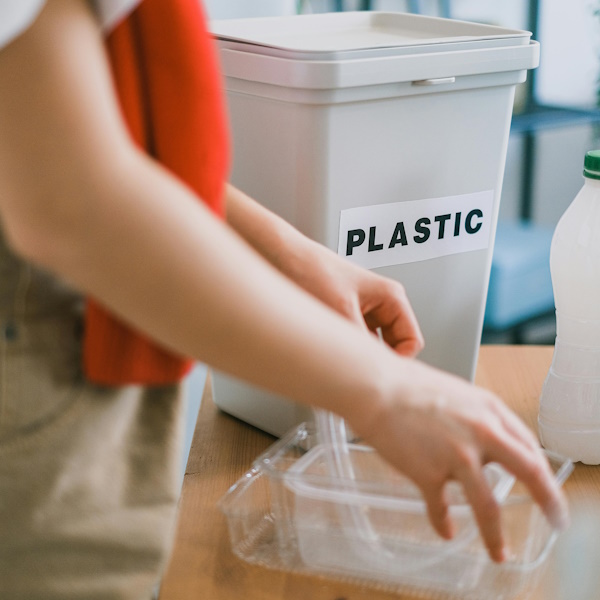Boost Your Business with Top Green Retail Trends: Save Costs & Attract Eco-Consumers
In today's world, going green isn't just a trend—it's a movement. As consumers become more environmentally conscious, retailers are stepping up their game to meet the demand for sustainable products and practices. From eco-friendly packaging to energy-efficient stores, green retail trends are reshaping the shopping landscape in exciting ways.
You've probably noticed more recycled materials on the shelves or heard about zero-waste stores popping up in your neighborhood. These aren't just passing fads; they're part of a larger shift towards sustainability in the retail sector. By embracing these green initiatives, retailers are not only reducing their environmental impact but also attracting eco-conscious shoppers like you.
Importance of Green Retail Trends
The shift towards green retail trends isn't just a passing fad; it's a fundamental change driven by consumers' growing awareness and concern over environmental issues. You're likely noticing more eco-friendly options on the shelves and signs of sustainability in store designs and operations. This isn't accidental. Retailers across the globe are recognizing that going green isn't just good for the planet—it's a powerful business strategy.
Consumer Demand Drives Change
A significant force behind the rise of green retail trends is consumer demand. Today, more than ever, shoppers are using their purchasing power to support businesses that prioritize environmental sustainability. A recent survey revealed that over 60% of consumers are willing to pay more for products that are eco-friendly. This shift in consumer behavior underscores the importance of retailers adopting green practices to meet customer expectations and stay competitive.
Environmental Impact Reduction
Adopting green retail trends plays a crucial role in reducing the environmental impact of retail operations. From reducing carbon footprints with energy-efficient stores to minimizing waste through eco-friendly packaging, every green initiative taken by retailers contributes to a larger global effort to combat climate change. For example:
- Eco-Friendly Packaging: Reduces the use of plastic and promotes recycling.
- Energy-Efficient Stores: Lower energy consumption and greenhouse gas emissions.
Enhanced Brand Image
Going green also significantly enhances a retailer's brand image. By demonstrating a commitment to sustainability, retailers can strengthen their brand reputation, build customer loyalty, and attract new eco-conscious shoppers. This, in turn, can lead to increased sales and market share. In essence, green retail trends offer a win-win situation where both the planet and businesses benefit.
In embracing these green retail trends, retailers are not just responding to consumer demand or regulatory pressures; they're part of a continuing transformation towards a more sustainable and eco-friendly retail industry. It's a clear indication that sustainability is no longer a niche market trend but a central component of retail strategy moving into the future.
Eco-Friendly Packaging
In today's retail landscape, the shift towards Eco-Friendly Packaging is not just a trend; it's a robust movement fueled by growing consumer awareness and demand for sustainable options. As you navigate the journey towards greener practices, understanding the significance of sustainable packaging becomes essential. This change not only reduces the environmental impact but also resonates with eco-conscious shoppers, elevating your brand in a competitive market.
Eco-friendly packaging involves the use of materials that are either recycled or biodegradable, significantly cutting down on waste and pollution. Think about packaging made from plant-based materials or post-consumer recycled plastics, which can be composted or repurposed after use. Here are some points to consider:
- Reduction in carbon footprint: By opting for materials that require less energy to produce, you're contributing to lower carbon emissions.
- Improved brand image: Customers today are looking for brands that align with their values. By adopting green packaging, you're not just selling a product; you're offering a statement of care for the planet.
- Cost savings in the long term: Though the initial investment might be higher, the efficiency and customer loyalty gained can lead to significant savings.
Adapting to eco-friendly packaging doesn't happen overnight. Start with small changes, such as replacing single-use plastics with alternatives like paper or bamboo. Educate your customers on the benefits of sustainable packaging, and don't forget to highlight these efforts in your marketing strategy.
Retailers across the globe are witnessing a paradigm shift as consumers increasingly opt for products that are not just good for them but also for the environment. The adoption of eco-friendly packaging is a clear indicator that the retail industry is taking significant strides towards sustainability. Transitioning to green packaging solutions is not only about meeting regulatory requirements or following a trend. It's about taking responsibility for the planet's future while catering to the modern consumer's expectations.
Energy-Efficient Stores
In the ever-evolving landscape of retail, energy efficiency stands out as a formidable trend impacting both the environment and the bottom line. As a retailer, adopting energy-efficient practices in your stores isn't just a nod to sustainability; it's a strategic move that aligns with consumer expectations and can significantly reduce operational costs.
Why Energy Efficiency Matters
- Reduces carbon footprint
- Lowers utility bills
- Enhances brand image
Given the urgency of climate change, businesses are ramping up efforts to minimize their environmental impact. For retail stores, this means integrating technologies and practices that cut down energy use without compromising the shopping experience. LED lighting, energy-efficient HVAC systems, and smart sensors for lighting and temperature control are among the top measures adopted by retailers aiming to go green.
Embracing Renewable Energy
Another stride towards energy-efficient retailing is the embrace of renewable energy sources. Solar panels, in particular, have seen a surge in popularity. Installing solar panels not only hedges against rising utility rates but also positions a store as a forward-thinking, environmentally responsible brand.
The Role of Design and Layout
You should not overlook the role of design and spatial layout in achieving energy efficiency. Natural lighting, for instance, not only reduces reliance on artificial lighting but also enhances the aesthetic appeal of the space, improving the customer experience. Thoughtful design that optimizes airflow can also reduce the need for heating and cooling, further slashing energy bills.
Retailers around the globe are recognizing that energy-efficient stores are not only good for the planet but also beneficial for business. By investing in energy efficiency, you're not just cutting costs; you're making a statement about your brand's commitment to sustainability and responding to the growing consumer demand for eco-friendly practices.
Zero-Waste Stores
Zero-waste stores are revolutionizing the retail landscape by challenging the norm of disposable culture. These stores operate with the goal of eliminating waste entirely, offering products without packaging or in recyclable/reusable containers. You're encouraged to bring your own containers or use those provided by the store to carry your purchases. This innovative approach not only minimizes landfill waste but also significantly reduces the environmental impact of consumer goods.
At the core of zero-waste stores is the bulk buy system. Here, products ranging from grains, nuts, and spices to liquids like detergents and shampoo are sold by weight. This system helps in reducing packaging waste and allows you to purchase exactly the amount you need, cutting down on food waste and saving you money in the long run.
Sustainability is woven into every aspect of these stores. From sourcing products from local suppliers to minimize transportation emissions to utilizing renewable energy for store operations, zero-waste stores exemplify what it means to operate a business with a minimal environmental footprint. Moreover, these stores often go beyond mere product offerings. They serve as educational platforms, offering workshops and resources on living a waste-free lifestyle and making eco-friendly choices.
The rise of zero-waste stores reflects a growing consumer awareness and demand for sustainable shopping options. As more people look to reduce their environmental impact, these stores are becoming increasingly popular, offering a tangible solution to the global waste problem. Their success sends a powerful message to traditional retailers about the viability of sustainability as a business model and the potential for reducing environmental impact through innovative retail practices.
In embracing zero-waste practices, retailers can not only attract eco-conscious consumers but also distinguish themselves in a competitive market. The movement towards zero waste in retail is not just a trend but a shift towards more responsible consumption and business practices.
Benefits of Green Retail Trends
When you embrace green retail trends, you're not just making an ethical choice for the environment, but you're also unlocking a suite of benefits that can propel your business forward in an increasingly eco-conscious market. The advantages of adopting these practices are far-reaching and can significantly impact your bottom line while positively influencing the planet.
Customer Loyalty and Attraction play a pivotal role in the success of any retail business. By going green, you signal to your customers that you share their values on sustainability and environmental responsibility. This alignment fosters a deeper connection with your clientele, translating into increased loyalty and attracting a broader base of eco-conscious consumers. As awareness and concern for the environment continue to rise, this appeal to environmentally-minded shoppers becomes an invaluable asset.
Operational Cost Savings might not be the first benefit that comes to mind when you think of green retailing, but the impact is undeniable. By implementing energy-efficient lighting, HVAC systems, and optimizing store layouts for natural light and airflow, you can significantly reduce your energy consumption and, consequently, your utility bills. Moreover, adopting practices like zero-waste and eco-friendly packaging can lead to long-term savings, outbalancing initial investments.
| Benefit | Impact |
|---|---|
| Customer Loyalty & Attraction | Increases brand loyalty and attracts eco-conscious consumers |
| Operational Cost Savings | Reduces utility bills and long-term packaging costs |
Brand Differentiation in today's market is crucial. Going green offers a unique selling proposition that distinguishes your retail business in a crowded marketplace. By committing to sustainability, you're not only ahead of the curve but also setting a standard that can elevate your brand reputation. This differentiator can be a powerful tool in marketing campaigns, helping to elevate your brand above competitors.
Embracing green retail trends brings about a multitude of benefits that extend beyond your store's walls. By aligning your business practices with the values of sustainability, you're positioning your brand for success in an evolving market. With increased customer loyalty, operational cost savings, and enhanced brand differentiation, the journey towards green retailing offers a promising path for retail businesses looking to thrive in a conscious consumer landscape.
Conclusion
Embracing green retail trends isn't just a step towards a sustainable future; it's a strategic business move that sets you apart in today's competitive market. By integrating eco-friendly practices, you're not only contributing positively to the environment but also tapping into a growing demographic of consumers who prioritize sustainability. The operational savings and enhanced brand loyalty are additional perks that come with going green. So, whether it's through energy-efficient upgrades or adopting sustainable business models, the time to act is now. Position your retail business as a leader in sustainability and watch as it flourishes, driven by a conscious consumer base and operational efficiencies. Remember, going green is more than a trend—it's the future of retail.







